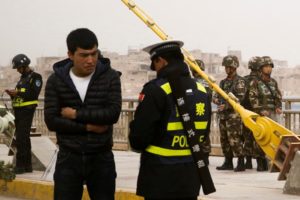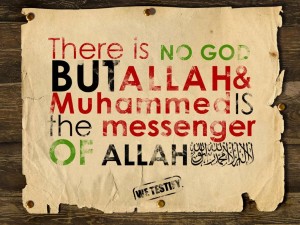20 May 2010
We must do all we can to protect women, especially Muslim women, from discrimination and oppression so they live an open lifestyle.[Fred Nile,MLC]
http://www.smh.com.au/opinion/politics/an-open-society-has-no-place-for-the-burqa-20100519-vezj.html
The above quote from Fred Nile evidences a very admirable sentiment and one that we should encourage all our politicians to support. At first glance, for anyone who knows Mr Nile’s history on Islamic issues, it seems a somewhat misplaced sentiment but everyone deserves a chance to change their views.
It’s a good thing that having one’s cheek in their mouth doesn’t affect how they type, otherwise the above paragraph may have read more like….rqurhwonuwehjnwuifhwdnjfhwuidfhd….
Of course Mr Nile has not changed his views but he did in fact make the above statement. It is just demonstrative of how Orwellian this debate about the burqa has become. Before we go one let’s just remind ourselves of what some of those words ACTUALLY mean as opposed to the doublespeak that we are being fed. From Dictionary.com:
Discrimination: treatment or consideration of, or making a distinction in favour of or against, a person or thing based on the group, class, or category to which that person or thing belongs rather than on individual merit
Oppression: the exercise of authority or power in a burdensome, cruel, or unjust manner.
Now that we have those meanings clear, what was the context of the comment made by Mr Nile? It was the closing point in an opinion piece he submitted to the press outlining his reasons for submitting a private members bill to the NSW Parliament which would make it illegal for a woman to wear the burqa in public punishable by a fine and/or imprisonment.
So the proposal is to free women from oppression and discrimination by doing what? By removing their right to wear clothing of their choice under pain of a fine or jail.
What was the meaning of discrimination and oppression again?
I think it time that we start calling a spade a spade. This argument about the burqa, and the hijab as well, is not about women’s rights – you don’t promote women’s rights by removing them. Nor is it about security – the same effect can be achieved by wearing a hat and dark sunglasses and no-one is suggesting that these be banned.
This debate is about western society being faced with something that makes them uncomfortable and they feel confronted by. It may be couched in phrases about protecting our values or way of life or some other nonsense but that is it, pure and simple. Seeing a woman dressed this way forces individuals to consider questions and issues that make them uncomfortable and rather than do that they would rather force the person to conform to their norms – and to make them feel better about themselves they say it is for the person’s own good or to protect some greater good for society.
What is this confronting issue? It is the fact that someone has such a strong belief in their faith, and all that this implies, that they would dress in this way. Let’s not make any mistakes here, to wear a full head to toe covering in a country like Australia is an enormously difficult thing to do. It takes a huge amount of courage to put yourself out their on public display knowing the sort of reaction that it will generate. You couldn’t do this without an absolutely unshakeable conviction in the truth and correctness of the beliefs which underpin this behaviour. And it is this that western society can not face.
There is a growing level of religiosity amongst Muslims worldwide. This is unquestionable and Australia is not immune to this. This growing awareness is not being driven by backward villagers from the middle-east but by a highly educated and sophisticated emerging generation. These are not people who do things because their parents did them or because the society around them says this is the way it should be. These are people who have thought long and hard about their purpose in life and made a conscious decision that these beliefs are the correct way forward.
When you have that level of conviction in your beliefs it no longer matters what the society around you says is acceptable or not. It is this issue which is really at the heart of the debate about the burqa and the hijab. The question running through the collective societal sub-conscience is “If we allow them to do this, what other doors does it open?” But the answer isn’t to impose laws on what women can or can not wear. All that will do is in fact speed up the process of religiosity within the new Muslim generation as more and more young Muslims come to resent the arbitrary interference with the practice of their religion. So in one sense it is in fact a no win situation for the opponents of the burqa and the hijab.
The answer to the real underlying issue will only come from understanding. Instead of trying to dictate how Muslims practice their religion, a battle that will never succeed, take the time to understand why we do what we do. With understanding will come, if not acceptance, tolerance.
Are there Muslim women who are oppressed by husbands or fathers? Of course there are – just as there are in the whole community. But that is not a religious question and can’t be resolved through banning religious practices.
Are there concerns about terrorism and public safety? Of course there are – but banning this type of dress for women will not address that in the least. If you are concerned about Muslims acting in violent ways, the first step to resolving this is to embrace us and not alienate us.
But if this is really about barricading the wider society against the encroachment of Islam then go ahead and ban Islamic practices because there is no surer way to foster something than to tell people they can’t do it.






